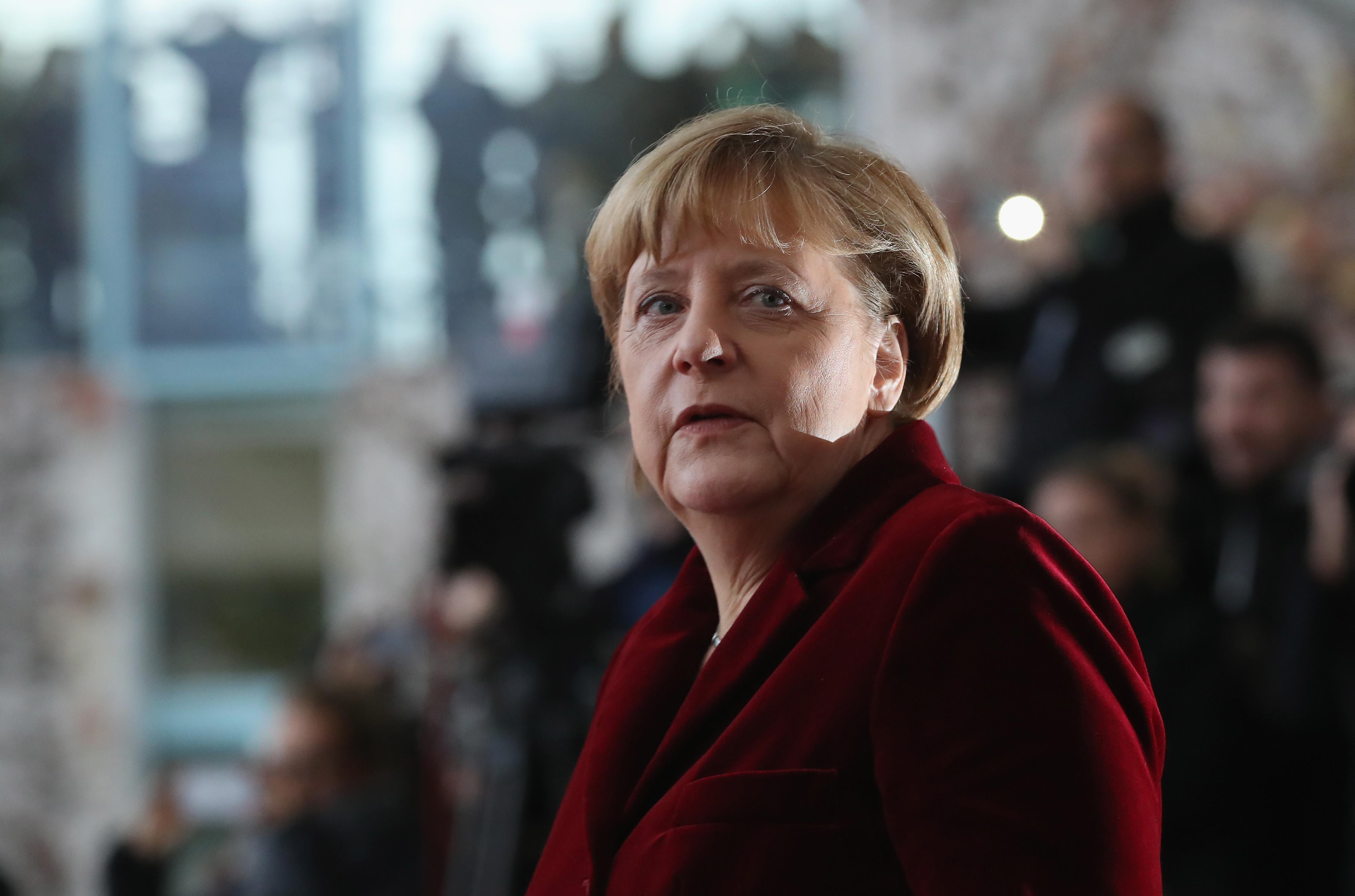A few days after Donald Trump won the United States presidential election, the New York Times ran an article whose headline declared that “Angela Merkel May Be the Liberal West’s Last Defender.” Responding to the impending presidency of a decidedly illiberal autocrat, the piece began with a sour proclamation: “And then there was one.”
In retrospect, it was too optimistic.
On Tuesday, Merkel, the chancellor of Germany, announced her plan to ban the burqa—a full-body garment worn by some Muslim women—“wherever that is legally possible.” The “full veil,” she explained at a conference of her Christian Democratic Union party, “is not appropriate here. It does not belong to us. … We don’t want any parallel societies. Our law takes precedence before tribal rules, codes of honor, and sharia.” Members of her center-right party, which routinely boasts support for “human dignity” and “freedom of religion,” greeted the pronouncement with raucous applause.
Since the start of the European migrant crisis, Merkel has allowed more than one million refugees into Germany, earning her praise from many liberal quarters. Time named Merkel its Person of the Year in 2015, calling her Chancellor of the Free World. No other country addressed the crisis so generously; the United States, for instance, allowed in just 10,000 Syrian refugees.
But public support for what Merkel describes as Germany’s “humanitarian stance” is waning. The notorious mass sexual assault on New Year’s Eve in Cologne, which was committed primarily by refugees, along with several terrorist attacks by refugees, has fed into fears that Merkel’s liberal asylum policies put Germans in danger. Nationalism, too, is on the rise, as more Germans question whether Merkel’s government value refugees over citizens. The emerging strain of nationalism is tinged with Islamophobia and xenophobia, a toxic but appealing combination for disgruntled voters. In recent regional elections, the anti-Muslim, far-right AfD party drew more support than Merkel’s Christian Democratic Union party, spelling clear trouble for Merkel’s upcoming reelection bid.
Merkel has apparently decided to respond to this wave of xenophobic nationalism by pandering anti-Muslim forces and, implicitly, turning against the migrants she so recently welcomed into Germany. Conservatives in Merkel’s party have already called for partial burqa bans in certain public spaces, insisting that the burqa “does not fit with our liberal-minded society”—but Merkel has now taken the idea to its extreme. She seems to endorse a law like the French burqa ban, a nearly comprehensive prohibition on Muslim women wearing full-body coverings in public.
The European Court of Human Rights upheld France’s law in 2014, ruling it did not violate the European Convention on Human Rights’ guarantees of “freedom of thought, conscience and religion,” or its “prohibition of discrimination” on the basis of “religion, national or social origin.” Instead, the court held, the burqa ban legitimate promoted a specific idea of “living together.”
Merkel’s ban, should it pass, will likely be upheld against a similar challenge—which is truly absurd, not just as a legal question, but as a simple matter of semantics. The European Convention bars government action designed to discriminate against a certain religion, or suppress expression of specific religious beliefs. Merkel’s speech on Tuesday made clear that she views the burqa ban as doing both: The burqa, she insisted, is “not appropriate here” because “it does not belong to us,” And who is “us”? Non-Muslim Germans. The ban, as Merkel describes it, constitutes an explicit effort to stifle certain religious expression specifically because that expression is unfamiliar to Germany and Christianity. It is a quintessential example of a discriminatory state action, a law that forbids religious expression because the government is uncomfortable with what that expression conveys.
If words have meaning, then, the European Court of Human Rights will block Merkel’s ban as plainly unlawful. But that would require courage, which is in short supply these days among government officials in liberal democracies. Just a few months ago, Merkel was exalted as the savior—the “last defender”—of liberal Western values. Now she had adopted an anti-Muslim policy to the right of Donald Trump.
